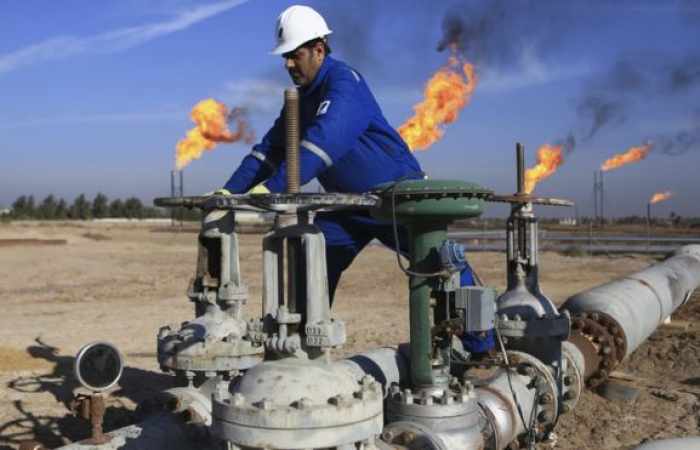The move initially pushed up the oil price, but it has dropped in the last few weeks on fears the limits would not be enough to deal with an oil glut.
A group of ministers agreed on Sunday to review extending the cuts by six months, taking them to the end of 2017.
At a meeting in Kuwait, they requested that officials report next month "regarding the extension of the voluntary production adjustments".
Opec countries and 11 other oil-producing nations, including Russia, agreed in December 2016 to slash production, the first time in 15 years that a global pact had been struck.
'Jittery'
The price of Brent crude peaked at over $57 a barrel in January, before slipping back to below $51 a barrel in recent weeks.
That was after Opec revealed a surprise jump in global crude stocks in February, and US oil producers - who are not part of the cuts - started to increase production again.
Abhishek Deshpande, an oil analyst at Natixis, told the BBC the price had fallen after oil traders became "jittery" about the market.
In particular, they were uncertain about the commitment of Russia and Saudi Arabia, Opec's biggest member, to the cuts, Mr Deshpande said.
The oil countries now need to show "discipline" and cut back on production in the coming months because stocks are still too high, he said.
"The chances remain high for an extension to the supply cuts, as long as there are more stockpile withdrawals," he added.
More about: #oil
















































